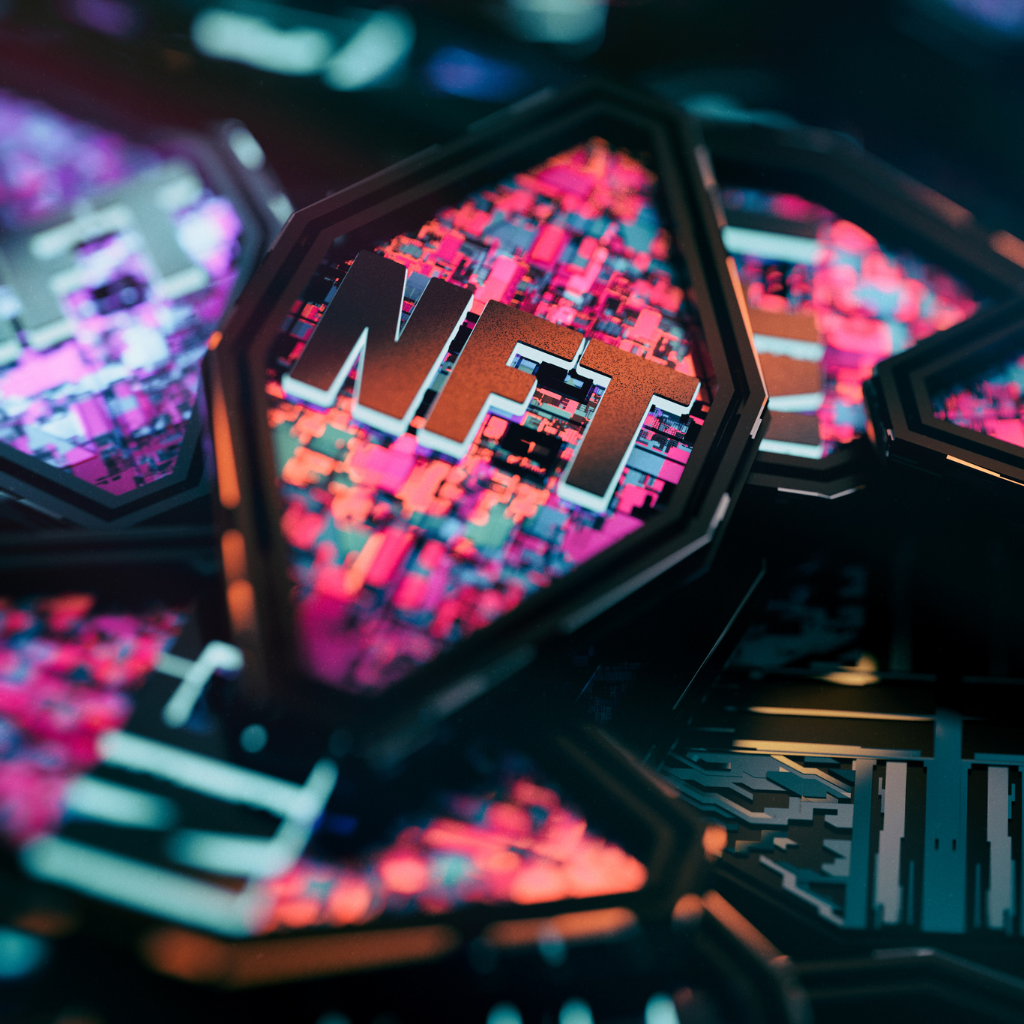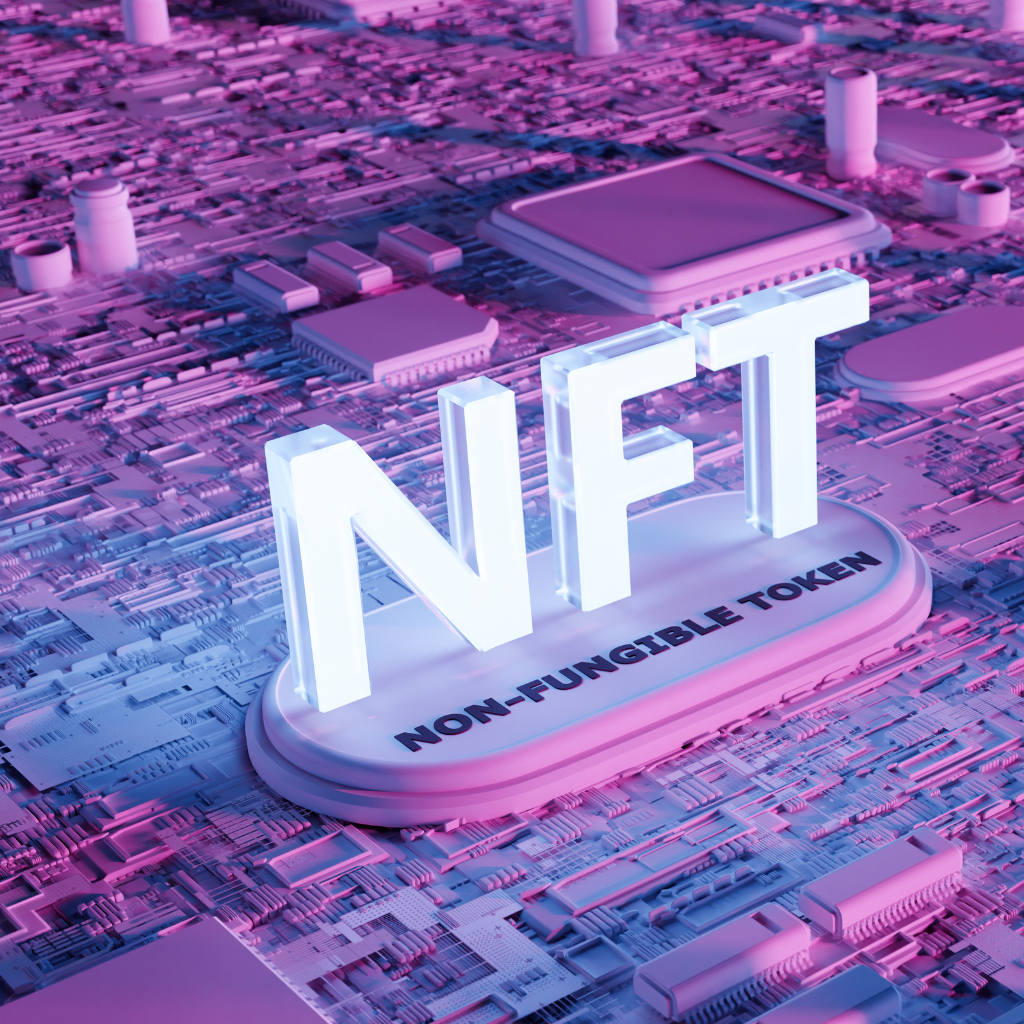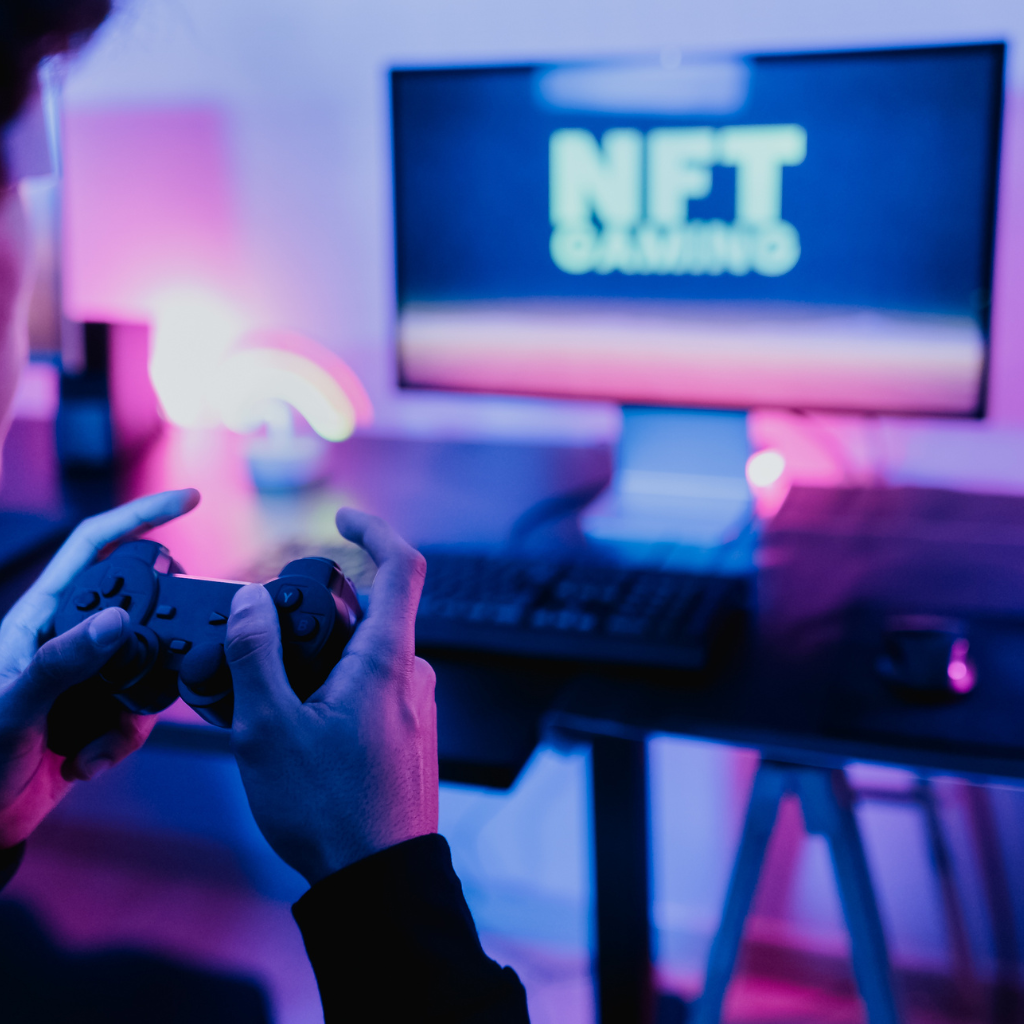What Are NFT games?
NFT games merge mechanisms typical of traditional video games with the advantages of blockchain technology and the possibilities of the metaverse . Therefore, they are also known as Web3 games.
In short, these types of games allow you to generate and exchange digital items in the form of NFTs. In this way, the ownership of the tools, weapons, skins and terrain remains in the hands of the gamers . They have full control of the items they create or purchase, and can even transfer them out of the game.
Contrary to what happens with traditional video games, players can make their investment profitable, either by improving the NFTs or by selling them. Nft Gaming Development Property rights over tokens transform the concept of video games, since the value of the objects is not limited to their usefulness in the game.
We can talk about NFT games as economic ecosystems where users can make a profit by playing or trading . Hence, terms such as GameFi and Play-to-Earn ( P2E ) are used in the sector. These terms refer to spaces with financial dynamics linked to heterogeneous communities, including not only gamers and developers, but also investors and traders .
NFT Games: Origin
Released in late 2017, CryptoKitties is considered the first proper NFT game. It could be compared to Bitcoin in the case of cryptocurrencies: there were already previous proposals, but the turning point came with the launch of Nakamoto’s currency. With CryptoKitties, something similar happens.
Its operation raises some of the basic characteristics of NFT games: acquiring tokens to improve them . Each one has its attributes, which develop over time. These NFTs can be “crossbreeded” to spawn more kittens which can then be traded.
The launch of the game was a success. The CryptoKitties fever generated a trading volume of 4 million dollars in just one week. It also made transactions on the Ethereum network , where the project was hosted, more expensive (although that is another story).

The release of CryptoKitties caused a cataclysm in the video game industry, leading to rounds of funding for projects that could emulate the excellent performance of the Dapper Labs game .
How Are NFT Games?
As the name suggests, NFT games are characterized by using non-fungible tokens (NFTs). To a large extent, the characteristics of these games stem from the nature of NFTs:
Ownership – NFTs allow gamers to prove ownership of the items they generate, purchase, and use in games.
Intrinsic Value – Items in NFT games are unique and have attributes that define their exclusivity, rarity, and scarcity. Being unique items, they acquire value inside and outside the game, due to their utility and market price, respectively.
Transferability : They are transferable. They can be traded, bought, and sold on exchanges and marketplaces . Many games have their own slots that allow users to monetize their non-fungible tokens.
In-game economics : Web3 games have their own economic models that go beyond just NFT trading. The payment of products, services and items is carried out through native tokens launched by the projects.
Virtual Ecosystem – In addition to their own economic system, some of the most popular NFT games have their own metaverse. In them, users can buy and sell land, contributing to the expansion of virtual worlds, either by building or speculating.
Traditional Video Games vs. NFT Games
Compared to traditional video games , NFT games have advantages for gamers , such as the possibility of generating profit by playing. They also raise issues that do not affect traditional games, highlighting the regulatory aspect. Let’s look at some of the pros and cons of Web3 games .
Advantages Of NFT Games
The synergy between players and developers typical of P2E games benefits both parties. On the one hand, a good rewards model will attract a greater number of gamers interested in earning money by playing .
Not everything is a matter of generating profits, fun is a crucial factor . Creating engaging, ever-improving games is the best way to build large, strong, and appreciative communities. At this point, NFTs are important, both from the point of view of developers and users.

Questions how item ownership marks a tipping point. In both cases, items cost money (even in free games), but in traditional games, players do not own the items they purchase and use. This point is related to the value of the items, which is limited to the function they fulfill in traditional games, compared to that of NFT games that transcends the game environment.
Disadvantages Of NFT Games
When it comes to NFTs, the main disadvantage of Web3 games is regulatory. In legal terms, there is no clarity. There are overlapping regulatory frameworks that affect the video game and cryptocurrency sectors (largely uncertain), the reconciliation of which is highly complex.
In fact, this lack of regulatory clarity in relation to digital assets, specifically NFTs, is related to high levels of scams . Unfortunately, fraud is common in the cryptocurrency industry, also affecting gamers who trust illegitimate projects or unknowingly get involved in trading processes with cybercriminals.
The P2E gaming industry faces many other challenges , among which stand out: computer attacks, losses due to mismanagement of tokens, the high cost of some NFTs or the environmental impact associated with token generation.
The Unique Value Proposition Of NFT Games
NFT games are revolutionizing the gaming industry by offering an unmatched set of benefits that meet the needs of gamers and developers alike. Let’s dive into the unique value proposition of crypto games and find out what sets them apart from traditional gaming experiences.
‣ True ownership of in-game assets
One of the coolest things about NFT games is that you actually own your in-game assets. That’s how it is! Your digital treasures are yours to keep, trade or sell as you wish. No more worries about losing your progress if the game crashes.
This is only possible thanks to the blockchain technology that underpins NFTs. , which ensures that each in-game asset is unique and cannot have a duplicate. As a result, players can buy, sell, trade, or even rent their NFT-based in-game items without any interference from the game developers.
Plus, true ownership adds a layer of depth and immersion to the gaming experience. As players invest time and resources into their in-game assets, they develop a stronger bond with their digital possessions.
‣ Interoperability and functionality between platforms
In traditional games, in-game assets are often restricted to the specific game or platform they were created for, limiting their usefulness and value. However, in the world of NFT gaming, you are not locked to one platform. Your NFTs can often be used across multiple games and platforms, giving you more freedom and flexibility in your gaming experience.

The interoperability of NFTs is possible through the use of shared standards and protocols, such as Ethereum-based ERC-721 and ERC-1155 tokens. These standards ensure that NFTs can be easily transferred between different games and platforms, opening up opportunities for cross-platform gaming experiences and collaborations between game developers.
For players, this means they can use their hard-earned in-game assets in new and exciting ways, creating a more versatile and engaging gaming experience.
‣ Monetization and real value of in-game assets
One of the most attractive aspects of NFT gaming is the ability for players to monetize their in-game assets and translate their virtual achievements into real value. With NFTs, players can buy, sell, or trade items, characters, and other in-game assets on markets, allowing them to capitalize on their gaming skills and investments.
The actual value of NFT game assets is determined by factors such as rarity, utility, and demand. Players who collect rare or valuable assets can potentially earn a significant return on their investment, providing an added incentive to interact with the game and develop their in-game resources.
‣ Increased security and fraud protection
NFTs offer greater security and fraud protection compared to traditional in-game assets. Built on blockchain technology, NFTs are tamper-proof and immutable, ensuring the authenticity and provenance of digital assets. Each NFT is unique and cannot be replicated, eliminating the risk of counterfeiting or duplication.
For game developers, NFT security features help maintain the integrity of their games and protect their reputation in the gaming community.With your digital assets safely stored on the blockchain, you can play with peace of mind.
Economic Benefits Of NFT Games
Cryptocurrency coins banner concept. Digital money falling on blue background as the main benefit of NFT games NFT games are not only revolutionizing the gaming experience for gamers, but also creating new economic opportunities for both developers and the gaming community at large. From generating new revenue streams for developers to fostering player-driven economies, NFT gaming is paving the way for a more sustainable and lucrative gaming ecosystem.
Creating New Revenue Streams For Developers
NFT games offer game developers a variety of innovative ways to generate revenue, beyond traditional methods like in-game purchases and advertising. Some of the main revenue streams for developers in the NFT gaming space are:
Attracting Venture Capital: The rapid growth and potential of the NFT gaming market makes it an attractive investment for venture capital firms, providing developers with the necessary funds to launch and scale their projects without relying solely on personal funds.
Undersaturated Market and Scalability: Since the NFT gaming space is still relatively new, developers have the opportunity to create innovative products with little competition, allowing them to scale their businesses to new heights.
New Ways to Income: NFT games allow developers to monetize in-game assets, charge entry fees, and earn commissions on asset transfer transactions, creating a wide range of income streams that can support the continued development and success of their games.
Author Bio:
Author Bio: Boopathi Krishnan Executive of Marketing at Blockchainx. With 1+ years experience in SEO and marketing,he loves talking about Blockchain,SEO and NFTs.
Website: https://www.blockchainx.tech/
LinkedIn: https://www.linkedin.com/in/boopathi-krishnan-n-105976213/
Instagram: https://www.instagram.com/boopathi_0612/?r=nametag
To Read More Tech Blogs Visit: Technical Nick

















